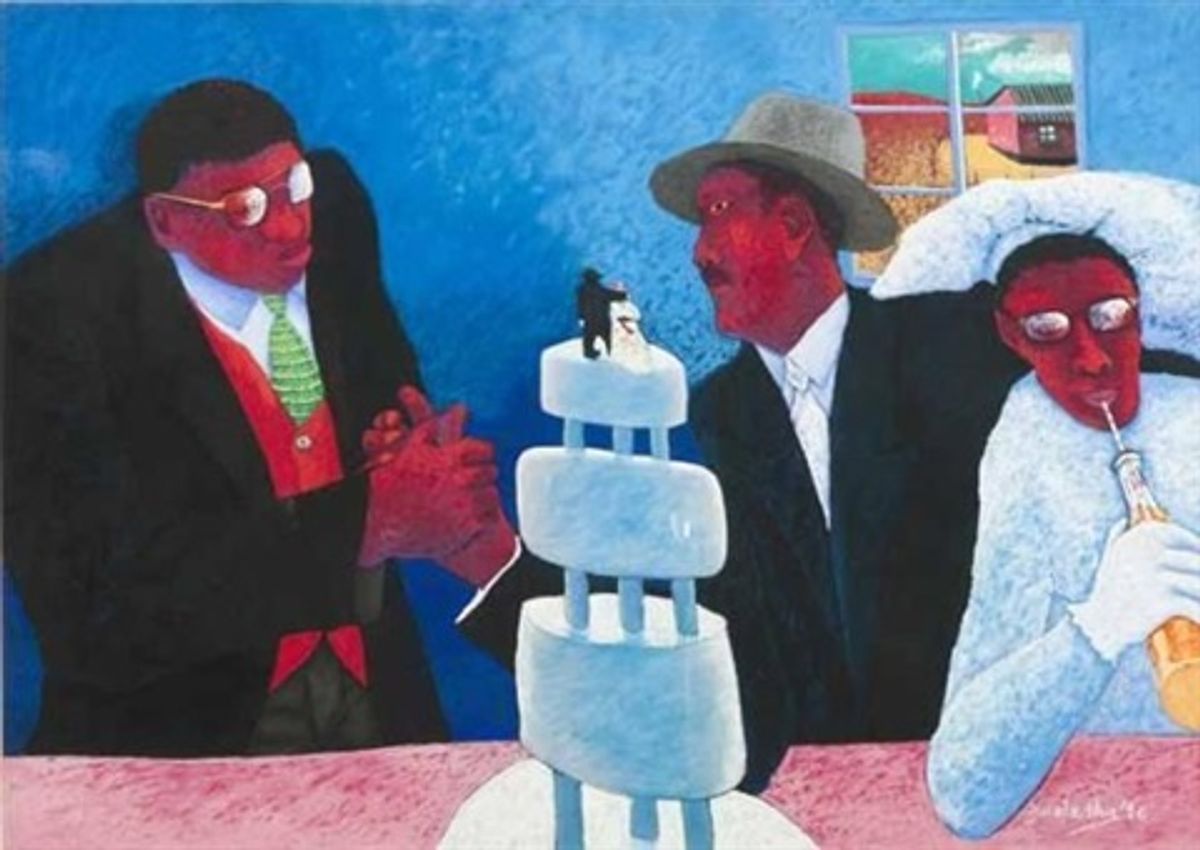Artist Candice Breitz has joined a sex workers’ advocacy group in protesting the display of a work by the South African artist and convicted murder Zwelethu Mthethwa, at a new art centre in South Africa's capital. Mthethwa received an 18-year-sentence in 2017 for murdering the 23-year-old sex worker, Nokuphila Kumalo. Her body was found in the Cape Town suburb of Woodstock in April 2013. Protestors argue that displaying the work is insensitive to the feelings of the victim's family.
Mthethwa’s (1996) Wedding Party pastel drawing is included in the exhibition All in a Day’s Eye: the Politics of Innocence at the Javett Art Centre, University of Pretoria. The group Sex Worker Education and Advocacy Taskforce (SWEAT) has asked that the piece is removed from display. “We (SWEAT) also asked for [the] artwork to be removed from the collection out of respect for Nokuphila’s family and community,” writes Lesego Tlhwale, the advocacy manager at SWEAT, in the South African journal Daily Maverick. A spokeswoman for the centre confirmed that the work is still on show.
Breitz subsequently requested that her work Profile (2017), be removed from a separate exhibition at the Javett Art Centre entitled 101 Collecting Conversations: Signature Works of a Century. The South African artist asked that her video installation be turned off—“in memory of Nokuphila Kumalo and out of respect for her still mourning family and community”—and that a protest poster (#SayHerName) be displayed in its place. Breitz says that the gallery has agreed to take down her work but declined to show the poster. "We will not be able to replace it with a placard, as the poster does not fit into the curatorial premise of 101 Collecting Conversations: Signature Works of a Century," a museum spokeswoman says.
During the trial, the prosecution presented CCTV footage linking Mthethwa to the crime scene. Kumalo was kicked more than 60 times on the side of the road. Tlhwale says: “By continuing to display his work, so soon after the conviction, you are undoing the healing work. Victims and survivors of violence do not get justice from seeing the perpetrators convicted, and justice is more than a prison sentence. We live in a country that does not view gender-based violence as a problem and where lives like Nokuphila’s are routinely devalued.”
In a statement posted online, the exhibition curator Gabi Ngcobo says: “Our intention with showing Mthethwa’s work is with the sole purpose of presenting it as 'evidence' that highlights how misogyny has played out in his work over time. We can see through his work, the perpetuation of violence against women. We therefore elected to utilise his work to present a psycho-social analysis that exposes his violent actions as not emerging out of the blue.”
The wall text for The Wedding Party says that “despite hard evidence proving otherwise, Mthethwa maintained his innocence by stating he did not remember his deeds”. Ngcobo adds that “we remember not only [Mthethwa’s] violent acts of brutality, but also his lack of remorse… we did not want to preclude the urgent conversation about violent, toxic, masculinist tendencies that this work engenders.”
It is unclear if other works by Mthethwa are in the collection of the Javett Art Centre which was inaugurated last month. The new gallery houses the collection assembled by the businessman Michael Javett.


